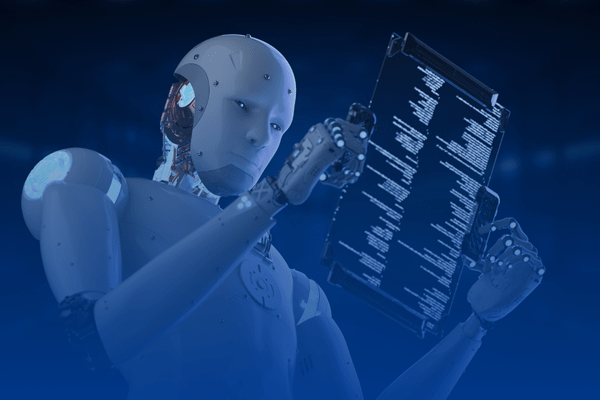The Top 5 Takeaways from PMI’s New Report on AI for Project Managers

We can speculate all day about the impact of AI for project managers. But it’s time to look at what the numbers really say. Like, how many project managers are actually adopting AI across their organizations? How are they using AI to automate specific tasks? And how is that automation affecting their performance and productivity?
Project Management Institute (PMI) gets to the bottom of these questions — and more — in their new 2024 report, Pushing the Limits: Transforming Project Management with GenAI Innovation.
To help you get up to speed quickly, we dug into the ~40-page report and pulled out the top five takeaways for your PM operation. So you can better understand how to adopt your own AI project management tools and prepare for the future of automation in this growing field.
Ready to dive in?
Let’s take a look.
1. AI adoption is booming across project management
It’s no surprise that project managers are increasingly adopting AI project management tools as they learn more about how it can streamline their work and improve results.
According to PMI’s survey, the number of PMs who use GenAI for 50% or more of their projects increased by 86% in just three months. As the report notes, these “high adopters” are getting ahead of the competition by implementing AI across a range of projects and tasks, contributing to increased productivity and organizational growth.
2. Individuals — not orgs — are leading the charge
Speaking of organizational growth, it’s important to note that individual project managers — whom PMI calls “Trailblazers” — seem to be carrying the torch for AI and slowly introducing it to their organizations. That is, organizations themselves aren’t generally responsible for leading a top-down approach to implementing this advanced technology across the business.
While these project management Trailblazers should be commended for pioneering AI usage, they shouldn’t really have to be put in this position. In fact, their organizations may be holding them back. As the report states, “Individual project professionals cannot lead the GenAI transformation charge on their own. Organizations play a crucial role in facilitating employee adoption of GenAI and guiding them toward tasks that can be developed over time.”
3. PMs are starting to use AI for more complex tasks
Project managers aren’t just implementing more AI tools across the industry. They’re also using those tools to accomplish more complex tasks like project planning and resource management. Meaning, the industry is already moving past using AI to just automate reporting and summarize documents. While automating these tasks is certainly impactful, early adopters are already experimenting with more advanced applications, including:
- Budget management
- Resource management
- Timeline development
- Project planning and monitoring
- Data analysis
- Natural language processing
Here’s where the Trailblazers really shine. They’ve already had the time to get comfortable with using AI-powered project management tools and now they’re able to truly innovate and push the boundaries of how AI can impact their work.
4. AI is significantly improving productivity & performance
Well, this increased adoption of AI is clearly working — leading to a significant increase in not just productivity but individual performance metrics. Specifically, PMI was able to track a high impact on project results across tasks such as data analysis and cleaning, data forecasting, and project documentation and reporting.
Meanwhile AI was also found to have a notable impact on individual performance, including creativity, problem-solving, and overall effectiveness. So, for those concerned about whether AI is going to take your job within the next five years, this could come as a bit of relief: AI is not poised to necessarily replace you, but to enhance your skills and make you an even better project manager.
As PMI reported, project managers can use GenAI to automate manual tasks, freeing up their time for more creative ideation. Going further, however, GenAI can even help contribute to brainstorming sessions and improve decision-making by providing the initial prompts and data insights project managers need to optimize their strategies.
5. But there’s still a long way to go…
Even with these advancements, we’ve still just scratched the surface of AI-based project management. Specifically, if project managers want to unlock the full potential of AI in this industry, they should focus on these two goals:
Utilize AI for high-impact tasks
Project managers still have a huge opportunity to utilize GenAI for high-impact tasks such as data analysis, budget management, and risk identification. Doing so can help boost efficiency, creativity, and problem-solving. For example, PMI found that almost half of project managers who used GenAI for risk identification said this task was the most positively impacted by the technology.
Obtain organizational support from higher-ups
AI trailblazers and project management pioneers can’t do this alone — or at least, they shouldn’t have to. Only with organization-wide support can project managers fully unlock the potential of GenAI tools. After all, PMs need their higher-ups to provide data security protocols, governance frameworks, and training for navigating this uncharted territory.
As the report states, “Truly transformational use of GenAI requires both individual mastery from trailblazing project professionals and substantial organizational support to eliminate barriers. Organizations must commit to long-term GenAI investment for sustained competitiveness.”
With buy-in from business leaders, project managers can better scale AI usage across teams and ensure their strategies remain aligned with overall business goals. This way, they’ll have the guidance and peace of mind they need to continue to innovate and chart the future of this advanced technology.
Ready to transform your own timelines with AI-based project management tools? Get started with Proggio.